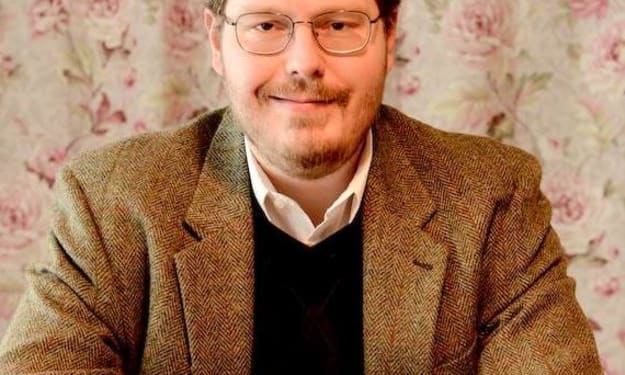Shadows within the Fog
Prologue and Chapter 1

Prologue
Somewhere over the Atlantic on descent into Zurich:
It takes courage to deliberately travel into an unknown future shrouded by danger and mystery. He had a choice. He could remain home in a world full of certainty—of loss, of death, of debt and decadence, of material emptiness. Or he could risk everything and defy fate. He chose defiance. There were many dangers in the unknown world he was entering. But there was a chance to find her and lift a curse that had plagued them for almost a millennium.
On the descent into Frankfurt, the pilot had announced that due to foggy conditions the flight would be diverted to Zurich. Due to lack of visibility, every airport in Germany was closed. Hearing the announcement shocked and terrified him. This was strange and it was dangerous. Were the fates, gods, oath keepers or whatever they were called preparing to stop him?
The pilot announced a bus would take passengers to Frankfurt from Zurich airport. But he decided to do something different. He would change his plans and take a bus to Munich. It traveled around Lake Constance passing through northeast Switzerland around St Gallen, briefly through Austria, and up through Germany to Munich.
Lewis had chosen the red eye because he had hoped to arrive in Germany rested and ready to find her. But he couldn’t sleep. Instead, he had 9 ½ hours alone with his thoughts cramped into an aisle seat with an old German couple to his right. Thankfully, they slept the entire time.
And thinking he did. He had endured hell for the past five years and this was his last chance to change it. If he failed now, the only paths forward were misery and, or death. If he had to choose, he would take death - preferably a quick one. The past five years were miserable, and he had suffered a lot. Leaving Katie was the worst decision he had ever made, and the resulting hurt and sadness had debilitated him at times. But on reflection, perhaps he had never really had a choice.
But the years had shown what true friendship meant. Diana had come into his life and stood with him in his darkest moments. If she had not found him a few of those times, he might have died. Her steadfast support had saved him, and he loved her for it; perhaps not to the degree and manner, she would have hoped, but he loved her still. He hoped she would be ok.
The fasten seatbelts sign pinged above him and pilot announced they would be landing in 30 minutes. Lewis leaned back and closed his eyes. •
1
Columbus: Lewis reflected on Katie.
After our breakup, and after my initial collapse, I started re-examining my past trying to understand how I got to this nadir. I reviewed everything I knew about Katie and her past. I read about the places she had lived. I tried to relive and remember every story I could recall about her life. To understand Katie, I realized it was necessary to understand her background and her hometown, a small ancient city north of the Harz Mountains in the eastern reaches of Germany. Halberstadt.
The first time I visited there, she was with me. She drove. It was dark and we went to her apartment. It was our first weekend together. But as our relationship deepened, I was often there when she was busy with work or something else. I realized it’s a strange city in many ways. It was completely destroyed and rebuilt after the second world war. Even though the communist regime had fallen some two decades before, the people were still scarred by 45 years of occupation. I heard it in conversations and saw it in the architecture of the city.
In all the times I visited, I found the city unique. It has a picturesque historical center with medieval buildings, and it is surrounded by these god-awful East German modernist creations. It contains a mixture of ill-fitting architectural styles but in the end, it works. Adding to that, the train station sits at the outskirts of the town. To get to the center, I had to walk at least two kilometers.
But Katie’s ancestors were not originally from there, at least not her father’s bloodline. The family began its tenure in the east with Matthias Schnell; her great-grandfather, a man who loved Bach, God, and his adopted city. But where the rest of her family began before that, I am not as familiar. All I know is that one day in the late summer of 1900, Matthias arrived at the city’s main station and walked the two kilometers to the diocese office next to the city’s cathedral. He was 20 years old and arrived with a recommendation letter in hand seeking a job as assistant organist.
At the time, Halberstadt was a medieval looking city filled with half-timbered houses and containing churches, monasteries, and one of Germany’s oldest and most prestigious cathedrals: the Cathedral of St. Stephen. The city was surrounded by endless expanses of corn and wheat fields and was the site of one of the first Christian missions east to the Saxons in the early 800’s.
Family lore told that Matthias was a man of medium height and thin build with large intense eyes and a prominent beak of a nose. His head was covered with black wavy hair. With his deep voice, he loved singing choral music in both German and Latin. His voice sounded out of place considering the source of the sound. He was a devout Catholic from Bavaria who was so inspired by the city’s history that he set out to find work there.
He grew up in Bavaria in a village in the countryside south-east of Munich close to Rosenheim. The third son of a farmer, he had little chance of inheritance, but was clever and industrious and took to music early. He worked hard in school and was devout and faithful in church, where he sang in the choir. The story goes that as serious as he was, he didn’t worry about the future. He believed he was destined to prosper. When he was 15, he was apprenticed to an organ maker in Rosenheim and by the way of his profession learned to play the instrument. He learned to read music and learned quickly. Upon finishing his apprenticeship, he abandoned the organ-making career and set his mind on mastering the instrument. For the next three years, he took odd jobs and studied music.
It was during those studies he learned of Halberstadt. He read about the conversion of the Saxons to Christianity and how the city had served as a missionary base for the east and north. He read about the artifacts and relics possessed by the cathedral and of the stories of wars and destruction surrounding the city. The stories and reputation of the city so inspired him that upon completion of his studies, he left Rosenheim and Bavaria and headed to the north-east.
Matthias arrived in the Saxon city with a solid recommendation and was given a job. And there he stayed. Over the next 45 years, he married and raised a family. They, in turn, raised families, who begat families of their own. The young Bavarian played wedding marches, requiems, festival pieces and Bach concerts for the faithful in his beloved and adopted city.
Throughout his life, he experienced joy and tragedy. He married a local woman soon after arriving and started a family. But tragedy followed a few years later with the Great War. The war took the lives of some of his local parishioners. He experienced this anguish directly when his wife’s cousins were killed in Vosges mountains in Alsace. Later in the late 1920’s, he was appalled by the antisemitic messages coming from the clergy but believed the hatred and darkness would pass. In the 1930’s when he was older, the Nazi’s formed a government in Berlin. At first like many Germans, he welcomed the movement but didn’t take them too seriously. After Kristallnacht when many of his Jewish acquaintances were taken away, beaten, or killed, he knew their evil had no bounds. Tragedy followed, seven years later in 1945, his eldest son and a granddaughter were killed during an allied bombing raid. Later that year, his beloved cathedral was obliterated by allied bombs. A few days later, American troops briefly occupied the city and then handed it over to the Russians.
Seven years later, Matthias died. But the family survived. His oldest grandchild from his first son was one of many to continue the family line. In the early 1980’s, his great-great grandson was born in the city he had adopted and loved. A few years later, his great-granddaughter was born— almost a century after Matthias walked into the Halberstadt Cathedral looking for a job as an organist. She would grow up to have his love of life and music, his industriousness and in turn be the love of my life. •
The rest of the book is available on Amazon.com or Amazon.de
About the Creator
Benjamin Haymond
Ben Haymond is an expat, lecturer, storyteller, and writer. He is the author Shadows in the Fog, a story about love and loss over centuries. His second novel, The Last Train to Milan is in post production.






Comments
There are no comments for this story
Be the first to respond and start the conversation.